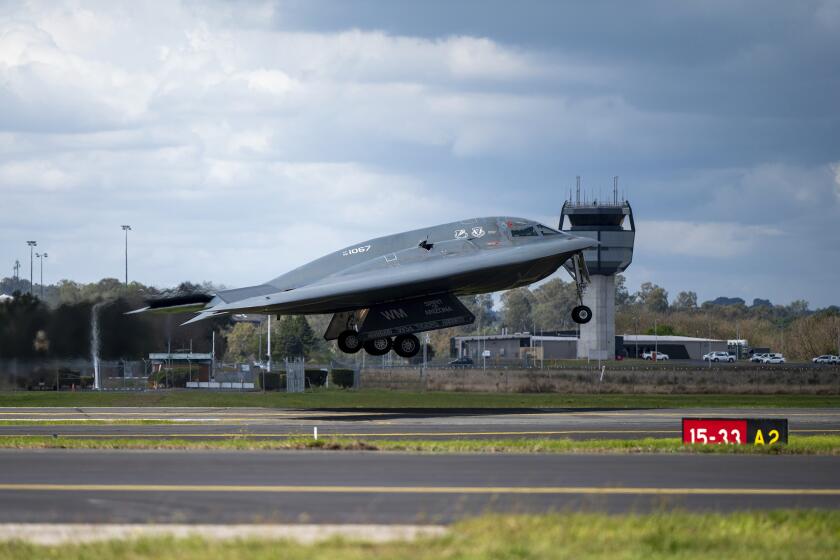Leader’s Ouster Sparks Celebrations in Burma
The streets of Rangoon, gripped by violence for the past week, filled Saturday with celebrating Burmese who had driven a brutal president from power.
Shops reopened, street barricades were cleared and people banged cooking pots to signal their relief that the protests had ended.
“The city is returning to a semblance of order,” a Rangoon-based diplomat said. “Buses are moving again. People are on the streets downtown.”
On Friday night, official Radio Rangoon had electrified the beleaguered capital with news that Sein Lwin, president and ruling party boss, had resigned. On Saturday, his whereabouts was unknown.
Troops remained in front of the City Hall, from which the president personally directed the bloody suppression of student-led anti-government demonstrations. The military also blocked access to Insein Prison, where arrested demonstrators, estimated to number in the thousands, are being held.
But there were no reports of shooting Saturday in the capital, which had been racked by four days of violence before Sein Lwin’s resignation was announced.
Nor were there any announcements about who was running the country with the former general out of office. The core of power in Burma is the Burma Socialist Program Party, and with Sein Lwin’s resignation as its chairman, Vice President U Aye Ko and Prime Minister Tun Tin are next in rank.
Friday night’s broadcast said the top organs of the party and the state would meet next Friday, presumably to name a new leader. Few diplomats doubt that former strongman Ne Win, Burma’s dictatorial leader from 1962 until he resigned as party chairman and president late last month, would be directing the choice.
The 78-year-old former general apparently handpicked Sein Lwin as his successor, triggering the protests that took at least 100 lives, and by unofficial estimates many times that, in the past week.
The students Saturday distributed pamphlets demanding a return to multiparty democracy, which ended with Ne Win’s 1962 coup d’etat, but did not single out any leader as an interim choice. They apparently are prepared to wait to hear what the ruling party decides. However, the imprisoned demonstrators remain a volatile issue that could ignite violence this week. The students have demanded their immediate release.
“Although one man has been removed, the system is still in place,” noted another diplomat.
The immediate problem for the people of Rangoon is a shortage of food and other necessities. The capital’s markets and shops are normally in short supply, and the disruption of distribution because of the street violence has aggravated the situation. Reports from the countryside said that trains and trucks bearing food had been unable to reach Rangoon for the last two or three days.
Hospitals, jammed with wounded from the street battles, are short of beds and bandages. Blood supplies are also running law, diplomats said.
The ruling party congress that approved Sein Lwin as Burma’s leader also called for a series of economic reforms, including direct private investment and a diminished role for inefficient state enterprises. While dealing with a heavy hand against demonstrators, Sein Lwin continued to support the reforms. Any new president named by the party is considered likely to support economic change as well.
In an unusual break from normal diplomacy, the Foreign Ministry of Japan, Burma’s largest aid donor, issued a statement Saturday declaring economic troubles to be the major cause of the past week’s demonstrations.
The demonstrators have not made economic reform one of their key demands, focusing instead on political and human rights issues. Their prime demand was the removal of Sein Lwin, who was marked for protest by his brutal handling of student demonstrations last March and at the time of the 1962 coup.
More to Read
Sign up for Essential California
The most important California stories and recommendations in your inbox every morning.
You may occasionally receive promotional content from the Los Angeles Times.










